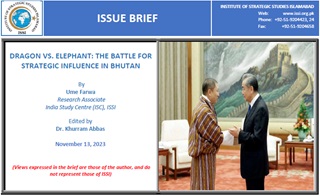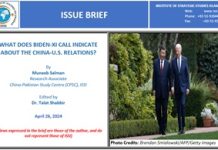A small landlocked country between China and India, Bhutan is the only South Asian state that does not have diplomatic relations with Beijing. However, both countries have maintained friendly ties with each other and regularly engaged in high-level boundary talks. The recent visit to China by the Bhutanese Foreign Minister (FM), Dr. Tandi Dorji, raised alarm bells in India. The visit concluded with the agreement on resolving the demarcated areas including the ones that fall within the disputed territory of Doklam – a strategic pressure point for both Beijing and New Delhi.
This high profile visit is another sign that the modern Bhutan – having New Delhi’s influence over its foreign and defence policy – is opening up to the world now. Given China’s economic rise and influence, it is becoming difficult for Bhutan to stay aloof from the regional politics. In an interview to The Hindu, the Bhutanese Prime Minister told the Indian newspaper, “Bhutan-China border talks are coming to conclusion as a possible exchange of land between Doklam and northern Bhutan.” Reiterated in the recent visit as well, the Bhutanese FM expressed the readiness of his country to establish formal ties with China. This marks a clear shift from Bhutan’s previous foreign policy postures. This is also, why the recent warming of Thimphu-Beijing ties is being viewed with much apprehension in the strategic quarters of New Delhi.















